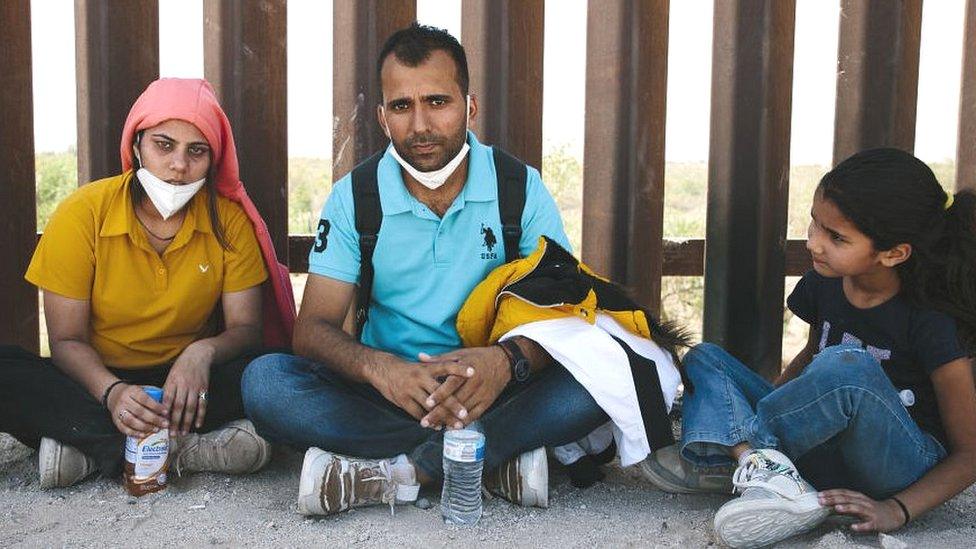China crackdown pushes LGBT groups into the shadows
- Published
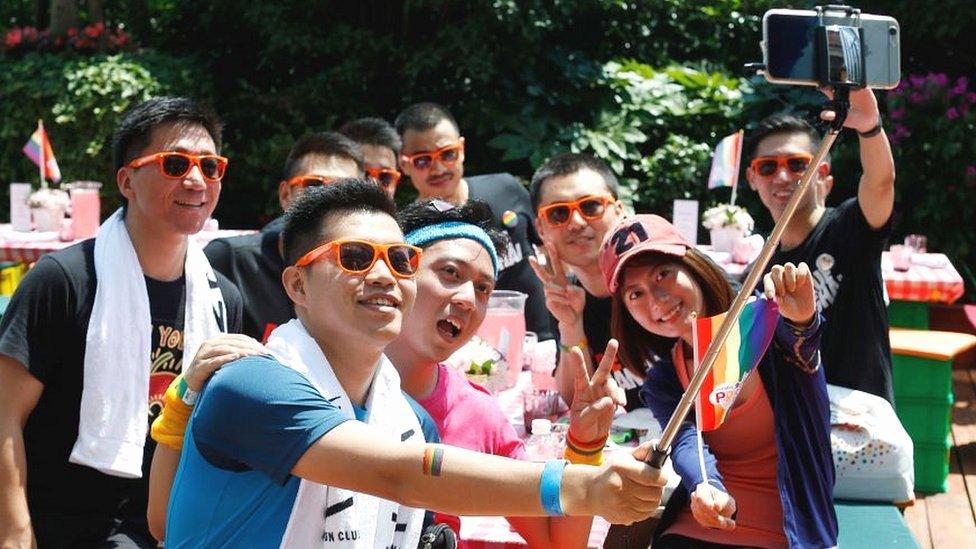
A Pride celebration in Shanghai in 2017
While celebrations were held around the world for Pride month, there were no major LGBT events in China.
The country's largest Pride event has been suspended since 2021.
The organiser, a group named ShanghaiPride, did not give a reason for the move, saying at the time, external it was "cancelling all upcoming activities and taking a break from scheduling any future events."
People taking part in political protests in China often face punishment, so instead of holding parades, ShanghaiPride had organised dance parties, community runs and film screenings in the city.
Now, only a few low-profile events are available for the LGBT community such as "voguing balls", where dancers execute moves inspired by model poses.
And ShanghaiPride is not the only major LGBT group to cease operations.
In recent years, several others have had to shut down, raising fears of a crackdown on activism in the world's second largest economy.
Dozens of accounts dealing with LGBT topics on the popular Chinese messaging app WeChat were reportedly deleted in 2021.
The same year, a group which filed lawsuits on behalf of members of the LGBT community closed down. There were reports that its founder was detained by authorities, with the closure of the group being a condition for his release.
And last month, the Beijing LGBT Center became the latest group to stop operations "due to forces beyond our control".
"With the closure of the Beijing LGBT Center, the last large LGBT organisation in China has decided to take a break," Raymond Phang, the co-founder of ShanghaiPride, told the BBC.
Mr Phang left China after his group cancelled an annual celebration in Shanghai.
"There was huge pressure on ShanghaiPride leaders and advocates and it became more and more challenging to organise events," he said.
"After 12 years of operations, organisers agreed that we could take a break, recharge and wait for the situation to get better".
A leader of another LGBT organisation, who has also left China, told the BBC that pressure from authorities has taken a toll on those pushing for social change.
"Organisers have been detained, and their friends and family members have been questioned by the police. This results in a lot of mental health pressure," said the activist, who spoke on condition of anonymity.
"Before the pandemic, the environment for LGBT groups was great. We could speak out loud and we won some legal cases," the activist added.
"I think we were too loud."
Changing tides
Daxue Consulting, a China-focused market research firm, estimates that in 2019, there were 75 million people in China who identified as LGBT - making up around 5% of the total population.
LGBT groups have campaigned on a number of issues including same-sex marriage, which remains unrecognised in the country.
Homosexuality was decriminalised in China in 1997 and the Chinese Society of Psychiatry stopped classifying it as a mental disorder in 2001.
In 2019, the National People's Congress, China's top legislative body, acknowledged that the legalisation of same-sex marriage was one of the top requests from citizens.
But space for LGBT advocacy has shrunk in recent years, along with a clamping down of civil rights movements and online dissent.
In 2021, a notice from China's education ministry caused a stir after it suggested that young Chinese men had become too "feminine".
The ministry called on schools to fully reform their offerings on physical education and strengthen their recruitment of teachers.
It advised recruiting retired athletes and people from sporting backgrounds - and "vigorously developing" particular sports like football with a view to "cultivating students' masculinity".
Later that year, China's broadcasting regulator said it would ban "effeminate" aesthetics in entertainment shows and that "vulgar influencers" should be avoided.
The National Radio and Television Administration also pledged to promote what it defined as more masculine images of men and criticised male celebrities who used lots of make up.
These developments come even as some LGBT individuals have grown in prominence.
Former police officer Ma Baoli who made headlines when he abandoned a nearly two-decade-long career in law enforcement to start a gay dating app, Blued, is one of them.
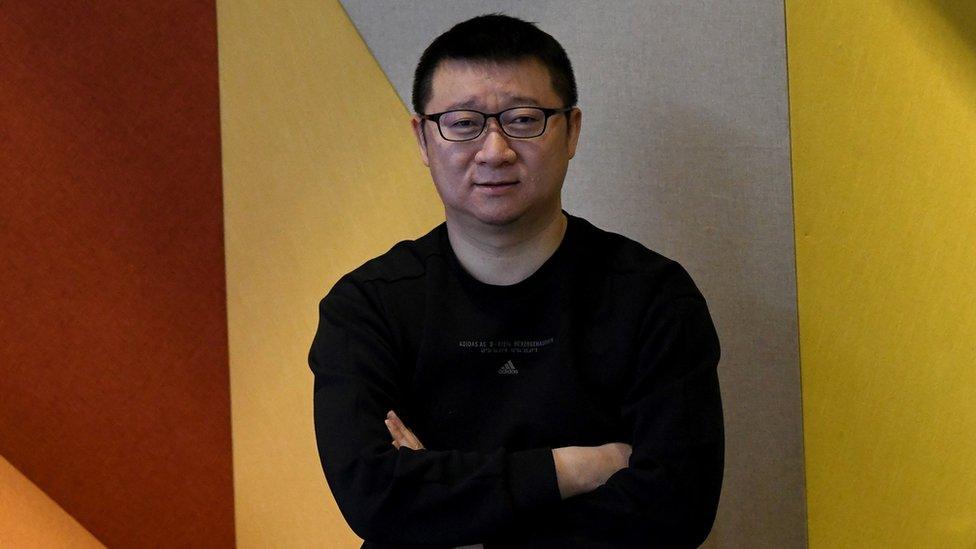
Ma Baoli founded a gay dating app
Mr Ma's technology company, BlueCity, debuted on the US-based Nasdaq stock exchange in 2020. It became the world's first LGBT social network to become a publicly-traded company.
However, BlueCity was de-listed and privatised last August.
Mr Ma resigned as its chairman and chief executive, without naming a successor.
In a post on the popular WeChat messaging app, he hinted at the difficulties of running an LGBT business in China.
"We have turned ideals into reality and made something impossible possible," Mr Ma wrote. "I feel content and unregretful as I've accomplished my mission."
The app has more than 40 million users globally, according to its website, external. BlueCity and Mr Ma did not immediately respond to a BBC request for comment.
"These problems are exacerbated in countries where there is more societal and familial discrimination," says Timothy Hildebrandt, an associate professor at the London School of Economics and Political Science.
Now living outside China, Mr Phang continues to support the country's LGBT community from overseas.
"I have been organising ShanghaiPride for the last decade and now that it has very limited events, I have more opportunities to support other community organisations and participate in their events," he says.
"Grassroots, individuals and corporates can still advocate within their own spaces and can be creative in reaching out to the community and allies," Mr Phang adds.
"There is very limited space for advocacy right now but we shouldn't stop trying."
Related topics
- Published2 March 2023
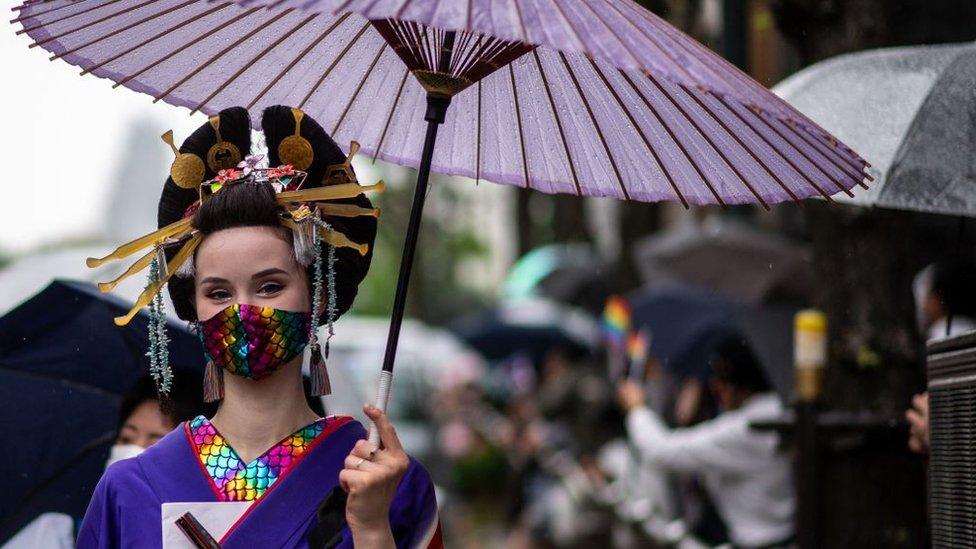
- Published7 January 2023
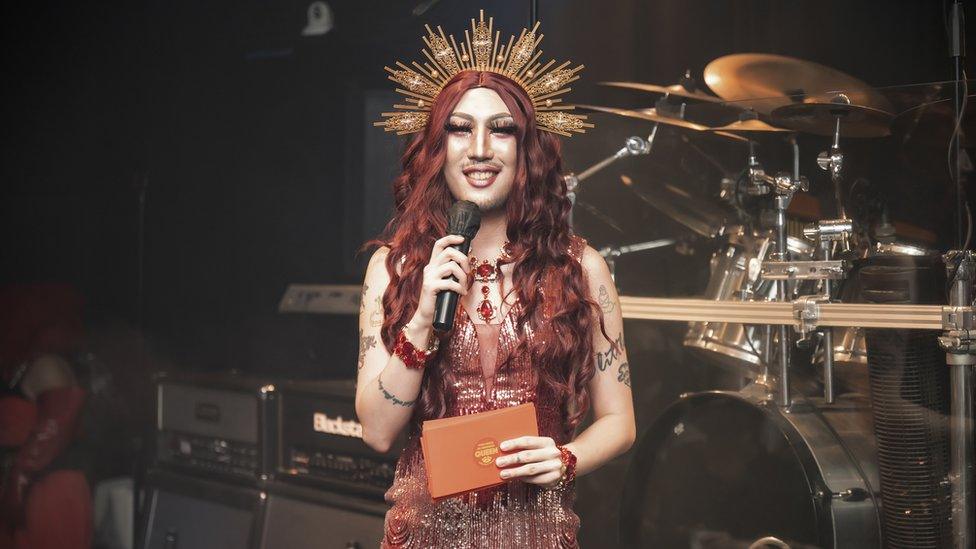
- Published4 December 2022
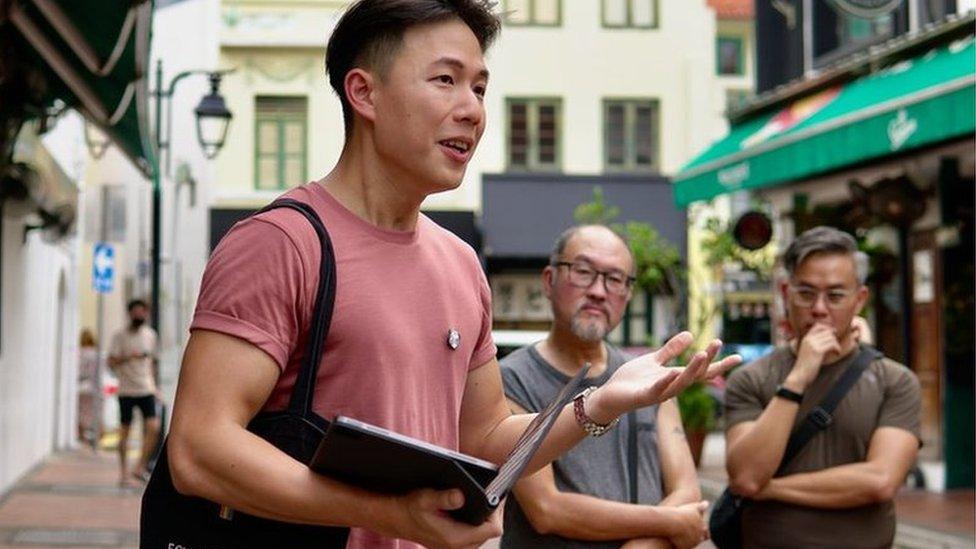
- Published15 December 2021
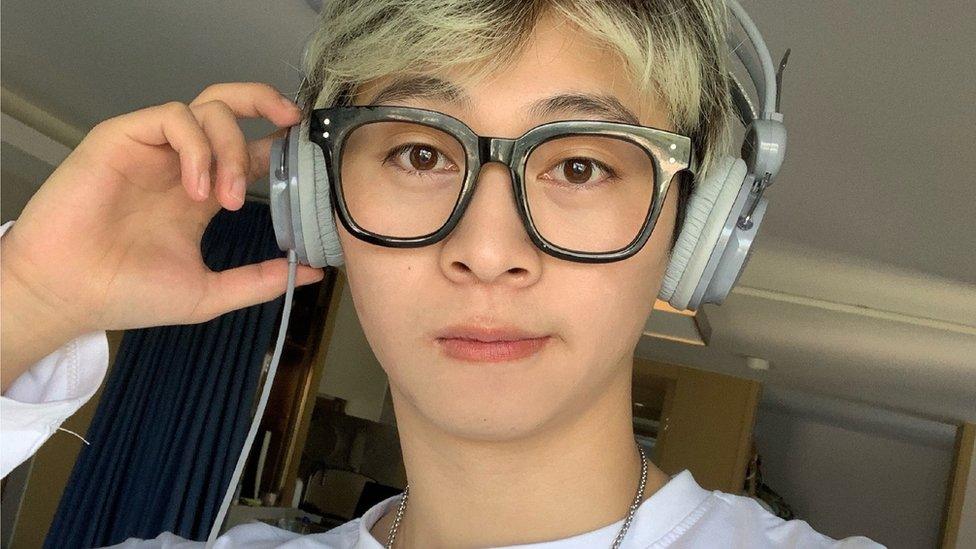
- Published10 October 2022
